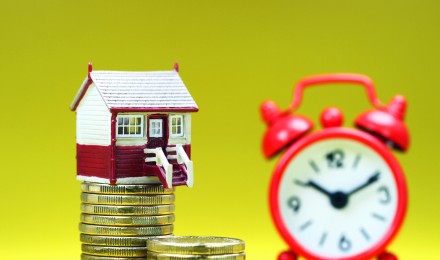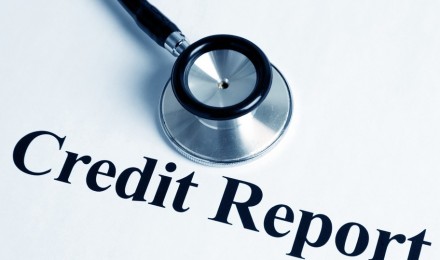There is an age-old debate that rages on between those who own their homes and those who rent: is it better to rent a house or to buy? The answer to this question is going to depend heavily on the area of the country where you live as well as on your personal circumstances.
Renting vs. Buying
The basic fact is that those who own their own home tend to have a significantly higher net worth than those who are renters. A great deal of this discrepancy is explained by the fact that when you own your home, your “rent” payments each month go to paying down your mortgage and increasing the value of equity in your house.
However, while a home is an investment and one that can cause you to save and earn a significant amount of money over the course of your life, a house is also a liability and a very illiquid investment. You can’t easily sell your house, your money is tied up in it, and there are costs associated with owning and keeping it up including property taxes, repairs and maintenance.
This means that there are arguments to be made both for and against homeownership and the right decision for you is going to depend upon your situation.
How to Decided
If you are considering whether you should buy a home or whether you should continue renting, ask yourself the following questions:
- Do you have money set aside for a down payment on a home? You should have at least 20 percent set aside as a down payment for your house. If you borrow more than 80 percent of a home’s value, you will have to pay private mortgage insurance (PMI) which can be very expensive and which is a tremendous waste of money. You also put yourself at significant risk if property values fall and you can’t sell your house for what you paid for it.
- Do you have an emergency fund set aside? Owning a house comes with expenses since you’ll be responsible for repairs and maintenance. If you buy a new house, you may not need to worry about expenses right away but they can still crop up. Not only that, but if you lose your job, you’ll need to have money available in an emergency fund to cover your mortgage payments until you find work again- otherwise, you will be at risk of losing the home to foreclosure.
- Are you ready to take on the responsibility of home ownership? You will have to care for the home and yard, do repairs and otherwise take care of a lot of stuff that your landlord may currently be handling for you. This costs more than just money – it also costs time. If you aren’t ready to spend Saturday mornings cutting the grass and weeding the garden (or you don’t have the cash to pay someone to do it), then you may be better off waiting on home ownership or looking into a townhouse or condo where you won’t have to take on this added burden.
- Can you afford property taxes, mortgage principle and interest, and insurance? In most cases, your principle, interest, taxes and insurance (PITI) AND all of your other monthly debt payments will need to be below 40 percent of your income for banks to consider lending to you.
- Is property priced reasonably in your area? You do not want to buy at the height of the market and pay a lot for a house that is going to go down in value in just a few short years. Pay attention to the trends in housing prices and to the differences between rent and mortgage costs. Can you buy something for close to the cost of renting it? This will help you to determine if now is a good time to buy.
By considering all of these factors, you can make the most informed choice about whether you should continue to rent or whether it is time to take the leap into owning your own home.
There is an age-old debate that rages on between those who own their homes and those who rent: is it better to rent a house or to buy? The answer to this question is going to depend heavily on the area of the country where you live as well as on your personal circumstances.
Renting vs. Buying
The basic fact is that those who own their own home tend to have a significantly higher net worth than those who are renters. A great deal of this discrepancy is explained by the fact that when you own your home, your “rent” payments each month go to paying down your mortgage and increasing the value of equity in your house.
However, while a home is an investment and one that can cause you to save and earn a significant amount of money over the course of your life, a house is also a liability and a very illiquid investment. You can’t easily sell your house, your money is tied up in it, and there are costs associated with owning and keeping it up including property taxes, repairs and maintenance.
This means that there are arguments to be made both for and against homeownership and the right decision for you is going to depend upon your situation.
How to Decided
If you are considering whether you should buy a home or whether you should continue renting, ask yourself the following questions:
- Do you have money set aside for a down payment on a home? You should have at least 20 percent set aside as a down payment for your house. If you borrow more than 80 percent of a home’s value, you will have to pay private mortgage insurance (PMI) which can be very expensive and which is a tremendous waste of money. You also put yourself at significant risk if property values fall and you can’t sell your house for what you paid for it.
- Do you have an emergency fund set aside? Owning a house comes with expenses since you’ll be responsible for repairs and maintenance. If you buy a new house, you may not need to worry about expenses right away but they can still crop up. Not only that, but if you lose your job, you’ll need to have money available in an emergency fund to cover your mortgage payments until you find work again- otherwise, you will be at risk of losing the home to foreclosure.
- Are you ready to take on the responsibility of home ownership? You will have to care for the home and yard, do repairs and otherwise take care of a lot of stuff that your landlord may currently be handling for you. This costs more than just money – it also costs time. If you aren’t ready to spend Saturday mornings cutting the grass and weeding the garden (or you don’t have the cash to pay someone to do it), then you may be better off waiting on home ownership or looking into a townhouse or condo where you won’t have to take on this added burden.
- Can you afford property taxes, mortgage principle and interest, and insurance? In most cases, your principle, interest, taxes and insurance (PITI) AND all of your other monthly debt payments will need to be below 40 percent of your income for banks to consider lending to you.
- Is property priced reasonably in your area? You do not want to buy at the height of the market and pay a lot for a house that is going to go down in value in just a few short years. Pay attention to the trends in housing prices and to the differences between rent and mortgage costs. Can you buy something for close to the cost of renting it? This will help you to determine if now is a good time to buy.
By considering all of these factors, you can make the most informed choice about whether you should continue to rent or whether it is time to take the leap into owning your own home.







